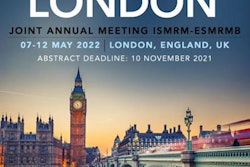Dear AuntMinnieEurope Member,
It's been an extremely tough week for many Irish radiologists. They already had their hands full catching up on the large backlog of scans caused by COVID-19, but now they've been hit hard by a ransomware attack that has led to the closure of more than 2,000 IT systems and has caused huge disruption.
In Monday's article about the attack, senior radiologists Dr. Adrian Brady from Cork and Dr. Leo Lawler from Dublin describe how they've adapted their working practices to cope without PACS or RIS. This confirms that necessity is the mother of invention, as the saying goes.
Can we improve the efficacy of mammography screening by adapting single and double reading based on artificial intelligence (AI)-derived cancer-risk scores? How can AI be used as detection support in the screen reading? These two questions are being addressed in a large Swedish trial. Find out more in the Women's Imaging Community.
In the past, patients have received cerebral aneurysm clips that are an absolute contraindication for MRI, so Dutch researchers advise caution when the type of clip is unknown. They've come up with solutions to this problem, and they reported their findings at this week's International Society for Magnetic Resonance in Medicine (ISMRM) virtual meeting. Go to our MRI Community for more on this story.
In a second article from ISMRM, an award-winning team from Oxford and Cambridge outlined the feasibility of profiling brainstem neurochemistry in COVID-19 patients in anticipation of a multisite clinical study across the U.K.'s 7-tesla MRI facilities.
For comprehensive coverage of ISMRM, please go to RADCast @ ISMRM, which you can access at ismrm.auntminnie.com. Included here is a fascinating article about the controversial Dr. Raymond Damadian's perspective on MRI's early history.



















